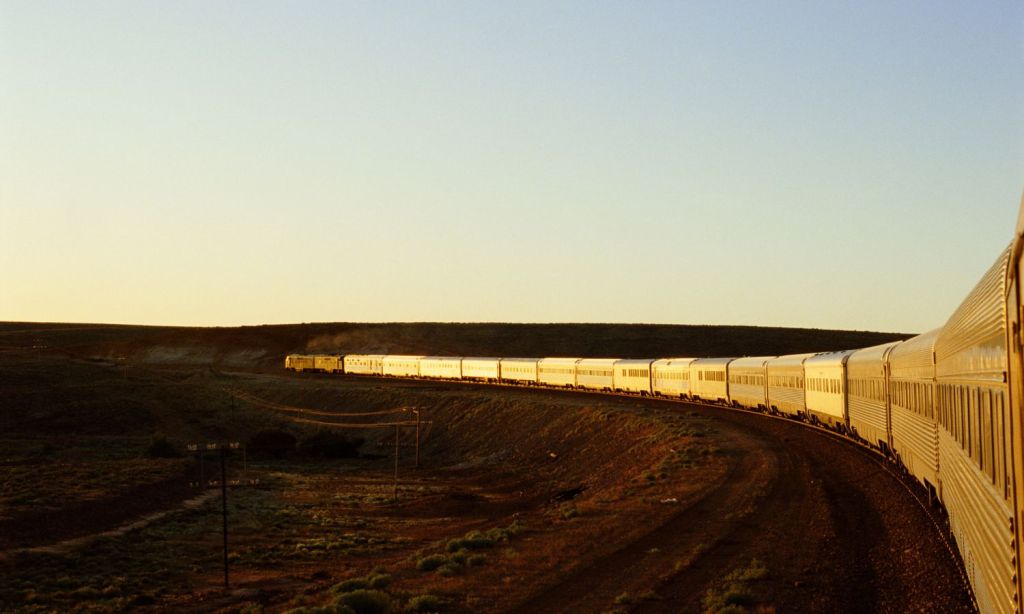Changes in societal values, technology and the global economy can all play a role in travel trends. Some trends we’ve seen in the past few years include more sustainable travel, wellness-focused and inspired by TV shows and movies we’ve binged.
While those trends are still strong, a few new travel preferences, behaviours and patterns are emerging. As someone who writes about travel regularly, I’ve picked seven of these trends as the most likely to take off next year. From cheeky mid-week trips, to awareness of accessibility needs, these will be the biggest travel trends in 2025.
Cheeky Mid-Week Trips
Many full-time workers are taking advantage of flexible office days by booking cheeky mid-week trips. Travelling during the week can be more affordable and less busy — and if you’re still working while you’re away, you won’t have to take annual leave. Australian tourism boards see the advantage too and have launched campaigns for more of those travellers. Gold Coast has campaign Sneeky Mid-Weeky while Victoria’s Grampians region had Cheeky Midweeky. I predict this trend will only increase as workers worry the window of opportunity will close if they are asked to go into the office full-time.
Destination Dollar Value
Travelling somewhere where the Australian dollar is weak can make your trip far more expensive than you budgeted for. If the Aussie dollar is weak in a destination, you might even want to wait to visit until it becomes stronger and, in the meantime, go somewhere with better value. Currently, the Aussie dollar is strong in the UK ($1 AUD = 0.52 GBP), the US ($1 AUD = 0.69 USD) and Europe ($1 AUD = 0.62 EUR). I see more of us choosing our travel destinations based on where the Aussie dollar is strongest in the future.
Travelling For Taste
Travelling for food is nothing new — case in point: Anthony Bourdain and Stanley Tucci. But thanks to Instagram and TikTok, among other factors, more and more, food is shaping how we travel. On TikTok, the hashtag #foodtravel has been used nearly 50,000 times. A recent report by Hilton found that 1 in 5 global travellers book restaurant reservations before their flights. Other global research found that the interest in food tourism is growing at 16% every year and that by 2027, it’ll become a USD$126.28 billion industry.
Slow Travel Seeking
Slow travel emphasises a more relaxed pace, usually gentler on the environment. It involves staying in destinations longer, taking trains or driving instead of flying and holidaying closer to home. It’s also about immersing yourself more in the local culture instead of just seeing the tourist spots. The hashtag #slowtravel has 24,000 posts on TikTok and a million on Instagram. A survey of Americans found that 94% of respondents were keen to book a slow travel experience in the future. Slow travel is tied with sustainability and as awareness of that increases, so will the popularity of slow travel.
Giving Back to the Planet
In 2025, we’ll take sustainable travel one step further, exploring in an even better way: regenerative travel. The way of travelling aims to leave a destination better than it was found — best described by Forbes as: “promoting biodiversity, supporting local economies and fostering cultural exchange”. In Australia, some regenerative travel experiences include rebuilding wildlife habitats, cleaning up beach trash and booking tours that fund conservation and research initiatives.
Harnessing the Power of AI
Artificial intelligence is seeping into our everyday lives so it makes sense it’s impacting travel. At the airport, it’s creating seamless check-in processes with facial recognition and security scanning. Hotels are using digital concierges to action requests and share recommendations. Self-service kiosks in the lobby let you seamlessly check-in. And AI assistants and chatbots now help with travel bookings. As with AI in any industry, ethical implications like privacy concerns and job displacements will need to be addressed.
Awareness of Accessibility Needs
Travellers are becoming more conscious of the needs of people with disabilities, including mental health conditions, mobility limitations and learning or understanding difficulties. This awareness is putting pressure on the tourism industry to accommodate all travellers with suitable accommodations, transportation and experiences. Research found that in the June quarter 2023, Australian travellers with accessibility needs took 18.5 million trips, spending a total of $6.8 billion. Travel accessibility isn’t to be ignored.
Related: Niche Wellness Retreats, Airport Resorts and Other Hotel Trends Big in 2025
Related: Is Staying in a Jail-Turned-Hotel Ethical?
Read more stories from The Latch and subscribe to our email newsletter.

